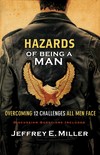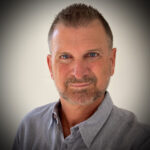 My nickname in high school was “Flex”—a name I was unaware of for years, and grew to despise when I learned of it. I would walk the halls while consciously holding my body in pose—poking out my muscles and sucking in my gut. As a diver in high school and college, I was motivated to keep my body toned. It’s one thing to wear those few threads of material as a swimmer having the water as a partial covering; it’s another thing altogether standing outside the water on a diving board with thousands of strangers watching your every move.
My nickname in high school was “Flex”—a name I was unaware of for years, and grew to despise when I learned of it. I would walk the halls while consciously holding my body in pose—poking out my muscles and sucking in my gut. As a diver in high school and college, I was motivated to keep my body toned. It’s one thing to wear those few threads of material as a swimmer having the water as a partial covering; it’s another thing altogether standing outside the water on a diving board with thousands of strangers watching your every move.
 I wanted people to be impressed by what they saw. I was tough, tight, and trim, and voted “Best Body” by my senior class. At nearly six feet, one hundred eighty pounds and 10.8% body fat, I was proud to inform people that my max on the bench press was 300 pounds. I didn’t realize that behind my back people were saying to one another—more as an accusation than a question—“Who does this guy think he is?” I also did not realize that I was faking honesty.
I wanted people to be impressed by what they saw. I was tough, tight, and trim, and voted “Best Body” by my senior class. At nearly six feet, one hundred eighty pounds and 10.8% body fat, I was proud to inform people that my max on the bench press was 300 pounds. I didn’t realize that behind my back people were saying to one another—more as an accusation than a question—“Who does this guy think he is?” I also did not realize that I was faking honesty.
Are You Faking Honesty?
Are you faking it? Is your behavior dictated by the presence of others? Do you realize that God is always watching—even in the absence of others? Here’s a simple test that examines several areas of life to see if you’re being honest.
- When you tell others your max, do you round up? When you share your weight, do you round down?
- Do you obsessively practice your appearance before the mirror in private so you can pose better in public?
- Have you ever fudged your time to make you seem faster?
- Do you shudder at the thought of someone seeing your body when it is not at its prime because you’ve exchanged your God-given desire to look good for a desire to impress others?
- Have you ever hidden the pain of an injury to make you look tougher?
- Do you count mulligans in golf when no one is looking? Or stretch the truth in other sports?
- Are you the same person in private that you are in the gym?
- Do you confuse fitness with physique? Although neither is inherently bad, which is more important to you?
- Do you ever stretch the truth to make yourself appear more courageous (with sports, women, or adventure)?
- Do you ever tell others you work out less than you actually do (to make them think it comes easier for you)?
Partial Honesty Equals Dishonesty
Few men tell outright lies. Instead, most of us stretch the truth. We exaggerate, not realizing that exaggeration equals dishonesty. We call a 45-minute workout an hour workout. We call a 4 1/2-mile run a 5-mile run. We call a 50-feet rock climb a 100-feet climb. Or we do the opposite: We diminish our actual workout to make it appear as though we didn’t have to work for our body.
A friend of mine worked hard to get into remarkable physical condition, but he didn’t want to admit that he had to work for it. He felt like it made him look superior if his condition just came naturally. He would comment about not having time to work out for the past month, and then impress the weight room with his ease with the weights. Soon, however, his dishonesty began to spill over into other areas of life. He began to comment about not studying for tests, and then ace them effortlessly. He would comment about his success with women in whom he wasn’t particularly interested. His false humility was a type of dishonesty designed to elicit admiration from others.
For some of us, the gym is the place where we feel the best about ourselves. That’s why we spend countless hours there working out. But dishonesty shouldn’t be necessary for us to feel good. If we don’t have integrity in the gym (our comfort zone), we probably aren’t going to have integrity elsewhere (like the workplace or the home).
Half-truths, shortcuts, mediocrity, and compromise may form a growing part of our culture, but God still does not tolerate them. We cannot go halfway for God. He does not compromise and His standards are not negotiable. The proverbial “curve” does not exist in God’s grading system. Anything that falls short of complete honesty is dishonesty. Partial honesty, not outright lies, is a daily temptation for many of us.
A Model of Honesty
I love seeing men work out with spotters. It’s a powerful image of strength, confidence, and humility. They’ve shed the “I can do it alone” mentality and replaced it with authenticity. An experienced spotter can dissect the weaknesses of an athlete, and help him improve—much the same way that a coach can.
I’ve always been fascinated by the player/coach relationship. Many players are coached by inferior athletes. It’s the stocky man coaching long distance runners. It’s the short man coaching basketball. Even when an athlete reaches the top of his career or becomes the best in the world, he still goes to his coach for advice—a coach who couldn’t achieve their level of performance in a hundred lifetimes of trying. Michael Jordon, Tiger Woods, Lance Armstrong, and Wayne Gretzky could all have thumbed their noses at their coaches. But instead, they humbly accepted their suggestions and advice. They wanted to improve and so sought out help. They couldn’t fake honesty with such trained eyes. Stat books don’t lie. Their coaches saw them at their very worst. They knew the athlete’s every weakness and embarrassment. And – they were too focused on improving the athlete’s weaknesses to become impressed with his strengths. The athlete listened and adjusted. And became the best in the world. Their humility led to honesty, and their honesty led to genuine improvement!
 Insecurity Verses Pride
Insecurity Verses Pride
I used to wear a T-shirt with a clever definition printed on the back:
cocky (kä-ke): The way a loser describes a winner.
Thinking of others as losers made me believe that I was a winner and allowed me to feel temporarily better about myself. Although this is an article on honesty, not pride, I’m convinced that we fake honesty to boost our pride (or to hide our insecurities). A fine line separates pride from insecurity. Prideful people have weaknesses, but they hide them behind their insecurities. Our insecurities masquerade as the pride that others see, and men sometimes use their exterior as a way to hide the shallowness of their interior. We present ourselves in a dishonest way in order to make ourselves appear better than we really feel. Satan personally experienced the sin of pride and self-exaltation, and wants every man to join him in the tragic consequences. We must beware of thinking more highly of ourselves than we ought to think, and trust God to accomplish our exaltation.
I tasted humility in the gym one day when I was doing curls. I watched as a college student was coaxed by some friends to lay down on the bench under 240 lbs. Everyone in the gym that day began to look on with curiosity when she pressed the heavy weights without considerable effort. Then she did it again. And again. I hit the showers. I didn’t act cocky for the rest of the day.
Three steps to getting FIT:
 For some, application comes easily and naturally. Others of us need prodded into action. According to Vance Havner, “It is not enough to stare up the steps – we must step up the stairs.” Here are some tips to help you get FIT:
For some, application comes easily and naturally. Others of us need prodded into action. According to Vance Havner, “It is not enough to stare up the steps – we must step up the stairs.” Here are some tips to help you get FIT:
F – Face your deficiencies. The greatest discovery a man can make is not that he is imperfect, but that no one ever thought that he was perfect in the first place. You’d be amazed at how freeing it becomes to allow others to know that you’re human. The struggles men face are common to us all. Your imperfections do not distinguish you from other men; acknowledging your imperfections, however, will set you high above lesser men unwilling to acknowledge theirs.
I – Invite accountability. Don’t go at it alone. Communicating honestly with other men about our struggles and imperfections can be very healthy. Write down your stats—your weight, records, and other stats—and share them with your accountability partner. Sometimes it’s easier to stretch the truth in speech than it is in writing. We can encourage one another, pray for one another, and confront one another about faking honesty.
T – Train your character along with your body. Paul tells us that physical training is of little value, but godliness is of great value, for this life and the life to come. Peter warns us not to merely consider the outward appearance, but to consider the inner man of the heart. Begin by setting some spiritual goals in the same way that you set physical ones. Consider writing measurable and achievable goals in areas such as Bible reading, prayer, attending church and Bible studies, and telling others at the gym about your relationship with God.
People can often see through the veneer of our exterior, even though we don’t think they can. Remember when I said that I bragged to others that my bench press max was 300 pounds? Actually, the most I ever benched was 290 pounds, and I put it up twice. But 300 looks and sounds better than 290—so that’s the lie I liked to tell people. I was living with constant insecurities about myself. I imagined that if I allowed others to see me for the man I really was—they’d not like what they saw. In faking honesty, I was seeking comfort for my insecurities. I’ve had to learn a difficult lesson that I hope you will learn with me: God is more concerned about our character than our appearance.
We live before an audience of many but we strive for the applause of One. Get real. Get honest.
 Jeffrey E. Miller (Th.M., Dallas Theological Seminary) is senior pastor of Trinity Bible Church in Richardson, Texas. He is the author of Hazards of Being a Man (Baker Books, 2007), a no-nonsense book about twelve struggles all men face. He has written several articles for magazines and journals, and his teaching can be found on the popular website Bible.org. He and his wife, Jenny, live in Plano, Texas with their two children.
Jeffrey E. Miller (Th.M., Dallas Theological Seminary) is senior pastor of Trinity Bible Church in Richardson, Texas. He is the author of Hazards of Being a Man (Baker Books, 2007), a no-nonsense book about twelve struggles all men face. He has written several articles for magazines and journals, and his teaching can be found on the popular website Bible.org. He and his wife, Jenny, live in Plano, Texas with their two children. Hazards of Being a Man (Baker Books, 2007) is designed to help men understand the challenges that every man faces on a daily basis . . . and overcome them! Being a man can be dangerous. This all-in-one tool is perfect for men’s groups, with more than twenty discussion questions included with each chapter. Available at Borders and Christian bookstores, or online at www.hazardsofbeing.com .
Hazards of Being a Man (Baker Books, 2007) is designed to help men understand the challenges that every man faces on a daily basis . . . and overcome them! Being a man can be dangerous. This all-in-one tool is perfect for men’s groups, with more than twenty discussion questions included with each chapter. Available at Borders and Christian bookstores, or online at www.hazardsofbeing.com .








